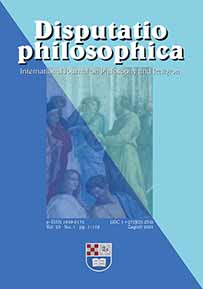A Prolegomenon on the Philosophical Foundations of Deep Learning as Theory of (Artificial) Intelligence
A Prolegomenon on the Philosophical Foundations of Deep Learning as Theory of (Artificial) Intelligence
Author(s): Sandro Skansi, Marko KardumSubject(s): Epistemology, Logic, Contemporary Philosophy, Philosophy of Science
Published by: Fakultet filozofije i religijskih znanosti, Sveučilište u Zagrebu
Keywords: artifficial intelligence;cybernetics;deep learning;empiricism;neural networks;
Summary/Abstract: This paper examines the philosophical foundations of deep learning. By pointing to the beginnings of deep learning and artificial neuron as a logical model of a human neuron, it is possible to claim that artificial intelligence was developed even before its official creation and that it was strongly connected to propositional logic. Bearing in mind some major setbacks in the development of neural networks, we show that deep learning can be treated as the theory of artificial intelligence and that it falls under artificial intelligence paradigm by claiming that everything can be done with learning alone and that all intelligent behavior is learnable. Thus, deep learning is a philosophical or an epistemological approach in which a form of radical empiricism must be advocated. Therefore, there is nothing in the mind that was not in the senses, and there cannot be anything in the mind that is not learnable.
Journal: Disputatio philosophica: International Journal on Philosophy and Religion
- Issue Year: 23/2021
- Issue No: 1
- Page Range: 89 - 99
- Page Count: 11
- Language: English

